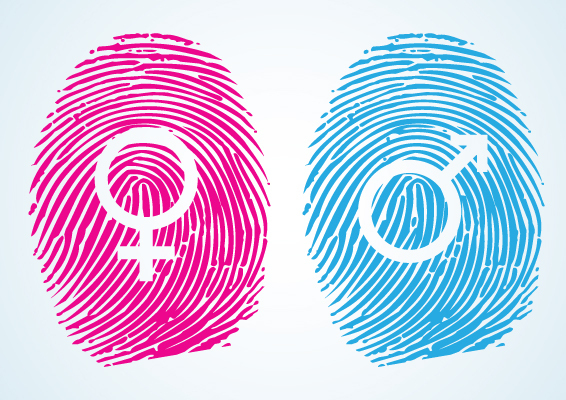IdentityIt is a concept that shows what qualities and characteristics a person has and who he is for himself and others. When an individual explains who he is EthnicityHe also talks about his family and social environment. Other factors that are effective in identity formation are gender identity And is sexual identity. These two identities have different meanings.
gender identity It is the biological identity that is determined when a person is born or even in the womb, and is decided by looking at the genital organs. sexual identity It is when an individual defines himself as male or female, different from his physiological gender. This is not something the individual chooses. At the same time, it is not a disorder or disease, it can be explained as an orientation related to emotions. As a result of being in society, people who have a sexual identity different from their physiological gender may experience anxiety and think that they will be excluded. For this reason, most individuals tend to hide themselves and their thoughts. The obligation to hide oneself can cause various psychological difficulties and problems in people, and these people can even be driven to suicide.
sexual identity constituent sexual orientation It depends on which gender the person is attracted to. If the person is attracted to a gender different from his own gender identity heterosexualIf he/she is attracted to the same gender homosexualIf he/she is attracted to both genders bisexual It is called.
What might cause sexual identity to differ from biological sex?
- modeling
- Support of one gender by the family
- Exposure to violence during childhood
- Having a traumatic memory about the opposite sex
- Having a high-pressure family
- Being subjected to harassment and rape
- There may be many reasons such as hormonal differences.
What effects can families have on this issue?
Children observe their parents between the ages of 3.5 and 6, during the so-called phallic period. During this period, boys tend to bond more with the mother of the opposite sex, and girls tend to bond with the father. However, fathers staying away from boys, mothers staying away from girls and lack of communication prevent children from taking role models. As a result, a gender different from the physiological gender may be adopted.
The perception that one gender is valued more within the family can create envy in children towards the other gender. For this reason, exhibiting the behaviors of the gender that is important, wearing clothes belonging to that gender and playing games can be observed.
As stated, intense pressure can also lead children to a different sexual identity. For example, a child with an oppressive father may have negative thoughts about this gender and may have trouble accepting the male gender.
At what age is sexual identity formed?
As stated, sexual identity begins to be discovered between the ages of 3.5 and 6. However, this period should only be perceived as a period of curiosity, discovery and experimentation. For this reason, boys should not play with dolls or girls should not play with cars etc. He should not be told not to play with it. If this is only a toy-related situation, it is likely to be curiosity.
In some studies, it has been observed that children who are interested in women's clothing work in fields related to women's clothing later in life (becoming a fashion designer, stylist). Apart from this, it is possible that a boy who plays house will become a cook when he grows up, and a child who wants a ballerina outfit will become a dancer. Based on this, children's preferences at this age should not be accepted as a definitive determinant.
The real formation of sexual identity is towards the end of adolescence, when other identities and personality structures are established.
When should families start considering that their child's sexual identity may be different from their gender identity?
If, during the phallic period, he/she definitely does not want to play with the opposite sex, refuses to wear the clothes of his/her own gender, does not play the games of his/her own age and gender, and rebels when encouraged, the reason should be investigated. First of all, the efficiency of the relationship with the same-sex parent should be increased. However, if this is a hormonal situation, having it model its physiological gender will not change the situation. The age group where we can fully understand this is post-adolescence.
What are the risks within society?
- social exclusion: It can prevent the person from being included in groups in his daily life.
- Exclusion in business life: They may experience difficulties in finding a job and continuing employment.
- Financial difficulties: They experience financial difficulties and financial difficulties due to not being able to find a job.
- Cultural trauma: There is more bad behavior in society than just ignoring it.
- Physical violence: They may be subjected to physical violence and abuse by people who exclude them.
- Sexual violence: They may face sexual violence in society.
- Being stranded from education: They may have to leave their education life short due to peer bullying.
- Psychological problems: Due to all the problems experienced, their mental health may deteriorate and they may hesitate to ask for help, thinking that no one understands them.
- Suicide: They are likely to commit suicide as a result of deteriorating mental health as a result of all the problems experienced.
What should families be concerned about and what should they do to support?
- The difficulties they experience in life should be taken into consideration and they should be treated with understanding in this regard.
- In order to reduce social exclusion, he/she should be helped to establish warm relationships with the people around him (inviting his friends to home, getting to know them, etc.).
- He/she should make suggestions regarding business life.
- People should be monitored to avoid being exposed to physical and sexual violence.
- Support should be provided in matters related to education.
- For psychological problems, a consultation should be made with a psychologist who is an expert in the field.
How should families react to these thoughts and feelings of their children?
- If he hasn't come to you and said this, you shouldn't force him and give him time.
- Parents should be shown that this is not a problem by reading audio books about this.
- After telling the parent, this should be treated as a normal situation.
- They should be made to feel loved and understood, as there is a high possibility of exclusion in society.
- People should not be told what the child has not told, the child should choose the people he will tell and his private space should be respected.
- It should not be forgotten that the level of anger may increase from time to time and one should be understanding about this issue.
- Problems experienced at school should be followed and the education process should be supported.
- For psychological problems, a specialist should be consulted
- Must be monitored for risk of suicide and self-harm
On Cognitive Development in Children



